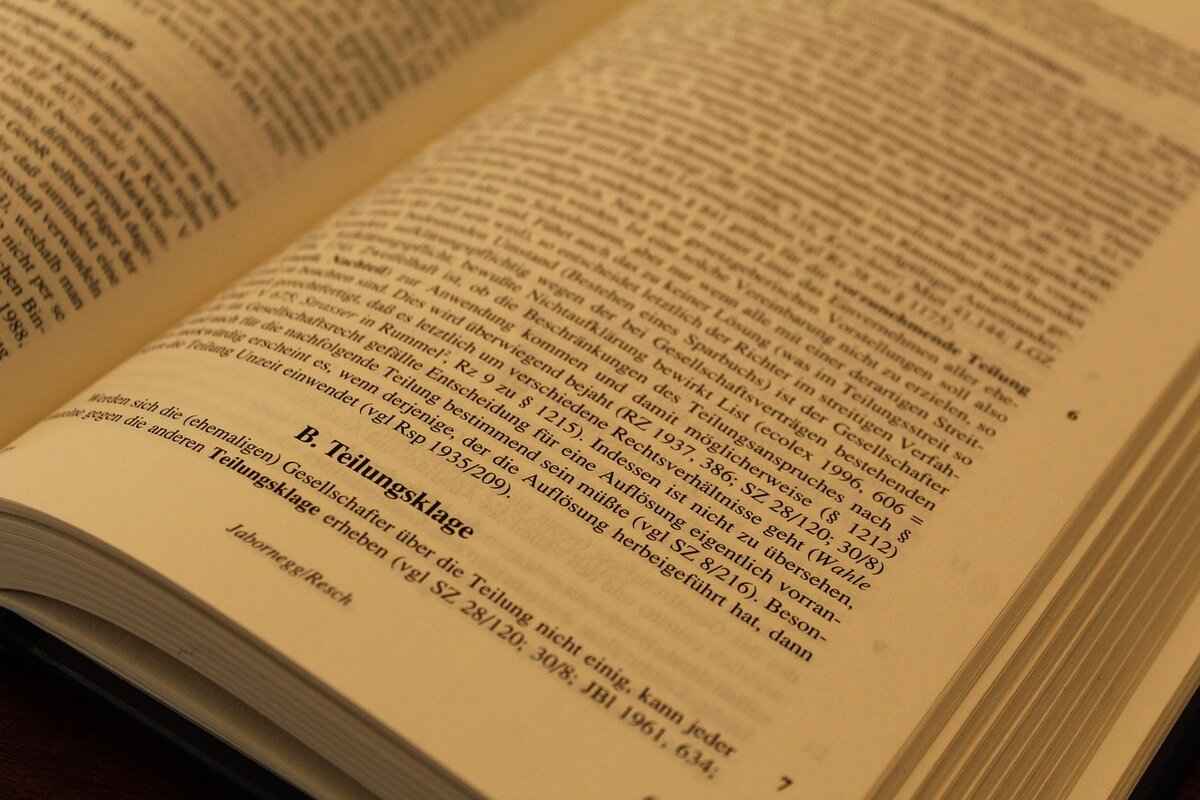This article delves into the complex landscape of recognizing foreign lawsuits in the United States, a critical issue for individuals and businesses engaged in international litigation. The legal framework governing this area is influenced by several principles, treaties, and practical considerations, which we will explore in detail.
Understanding Jurisdiction in Foreign Lawsuits
Jurisdiction is a fundamental concept in law that determines a court’s authority to hear a case. In the context of foreign lawsuits, U.S. courts evaluate whether they have jurisdiction based on several factors, including the parties’ connections to the U.S. and the nature of the dispute. Courts often rely on the minimum contacts standard, which assesses whether a foreign party has sufficient ties to the jurisdiction to warrant its involvement in the legal proceedings.
The Role of Comity in U.S. Courts
Comity is a legal doctrine that promotes respect for the laws and judicial decisions of other jurisdictions. In the U.S., this principle plays a significant role in determining whether a foreign judgment will be recognized and enforced. Courts consider the fairness of the foreign legal process and whether the judgment is consistent with U.S. law.
- Factors Influencing Comity Decisions: Key considerations include:
- Fairness of the foreign proceedings
- Reciprocity between the countries involved
- Public policy implications
Reciprocity in Foreign Judgment Recognition
Reciprocity is essential for the recognition of foreign judgments. U.S. courts are more likely to enforce a foreign judgment if the issuing country would similarly recognize a U.S. judgment. This mutual respect fosters international legal cooperation.
Public Policy Considerations
U.S. courts may refuse to recognize a foreign judgment if it contravenes established public policy. For example, judgments that violate fundamental rights or principles upheld in the U.S. legal system may not be enforced.
Types of Foreign Judgments Recognized
Not all foreign judgments are treated equally under U.S. law. Generally, courts recognize three main types:
- Money Judgments: These are monetary awards that U.S. courts typically enforce.
- Equitable Judgments: Non-monetary judgments may also be recognized, depending on their nature and the specifics of the case.
- Divorce and Custody Judgments: Family law judgments are often recognized but may face additional scrutiny.
International Treaties Impacting Recognition
Several international treaties shape the recognition of foreign lawsuits in the U.S. Notable treaties include:
- The Hague Convention on Choice of Court Agreements: This treaty establishes a framework for recognizing and enforcing foreign judgments, enhancing predictability in international litigation.
- The Uniform Foreign Money-Judgments Recognition Act: This act streamlines the process for recognizing foreign monetary judgments, providing clear guidelines for U.S. courts.
Challenges in Recognizing Foreign Lawsuits
Despite these frameworks, recognizing foreign lawsuits presents various challenges. Differences in legal standards, enforcement issues, and the complexities of international law can complicate matters.
- Differences in Legal Standards: Legal systems vary significantly across countries, which can lead to complications in recognition and enforcement.
- Enforcement Issues in Foreign Judgments: Even when a foreign judgment is recognized, enforcing it can be problematic due to jurisdictional barriers and differing legal standards.
Practical Implications for Litigants
Understanding the recognition of foreign lawsuits is crucial for individuals and businesses engaged in cross-border litigation. Knowledge of these legal principles can inform litigation strategies, influence settlement negotiations, and guide compliance with international legal standards. As globalization continues to shape the legal landscape, staying informed about the recognition of foreign judgments will be vital for effective legal practice.

Understanding Jurisdiction in Foreign Lawsuits
Jurisdiction is a fundamental concept in law, determining the authority of a court to hear a case and make legal decisions. In the context of foreign lawsuits, U.S. courts face unique challenges in establishing whether they have the jurisdiction to adjudicate matters that originate outside of the United States. This article explores the principles and criteria that U.S. courts utilize to determine their jurisdiction over foreign cases.
When a foreign lawsuit is brought before a U.S. court, several factors come into play. Primarily, courts assess whether the case meets the requirements of personal jurisdiction and subject matter jurisdiction. Personal jurisdiction refers to the court’s authority over the parties involved in the case, while subject matter jurisdiction pertains to the court’s authority to hear the specific type of case presented.
To establish personal jurisdiction, U.S. courts typically apply the minimum contacts standard, which evaluates whether the defendant has sufficient connections to the forum state. If a foreign defendant has engaged in activities that create a substantial connection to the U.S., such as conducting business or owning property, the court may assert jurisdiction. Conversely, if the defendant’s contacts are minimal or non-existent, the court may dismiss the case for lack of jurisdiction.
Subject matter jurisdiction also plays a crucial role in foreign lawsuits. U.S. courts have limited jurisdiction, which means they can only hear cases that fall within specific categories defined by law. For instance, cases involving federal questions or diversity jurisdiction—where parties are from different states or countries and the amount in controversy exceeds a certain threshold—may be heard in federal court. Understanding these legal frameworks is essential for litigants involved in international disputes.
In addition to jurisdictional concerns, U.S. courts often consider the principle of comity, which involves recognizing and respecting the laws and judicial decisions of foreign countries. Comity is not a legal obligation but rather a courtesy extended by one jurisdiction to another. U.S. courts may recognize foreign judgments if they are satisfied that the foreign court had proper jurisdiction and that the judgment does not contravene U.S. public policy.
- Fairness: Courts evaluate whether the foreign proceedings were fair and provided adequate due process to all parties involved.
- Reciprocity: Courts consider whether the foreign country would recognize U.S. judgments in similar circumstances, promoting mutual respect between jurisdictions.
- Public Policy: If a foreign judgment conflicts with U.S. public policy, courts may refuse recognition to uphold domestic legal standards.
Furthermore, the recognition of foreign judgments may be influenced by various international treaties. The Hague Convention on Choice of Court Agreements provides a framework for recognizing and enforcing foreign judgments in cases where parties have chosen a specific court to resolve their disputes. This treaty aims to reduce uncertainties in international litigation and promote judicial cooperation among signatory countries.
Another significant legal instrument is the Uniform Foreign Money-Judgments Recognition Act, which governs the recognition of foreign money judgments in the U.S. This act facilitates the enforcement of foreign judgments by establishing uniform standards that courts must follow, thereby streamlining the process for litigants seeking to enforce their rights across borders.
Challenges in recognizing foreign lawsuits often arise from differences in legal standards between countries. Variations in laws regarding contracts, torts, and procedural rules can complicate the recognition and enforcement of foreign judgments. Moreover, even when a foreign judgment is recognized, enforcement issues may emerge, particularly if the judgment debtor does not have assets within the U.S. or if the judgment is deemed unenforceable under U.S. law.
In conclusion, understanding jurisdiction in foreign lawsuits is essential for individuals and businesses engaged in international litigation. By navigating the complexities of personal and subject matter jurisdiction, as well as the principles of comity and applicable treaties, parties can better strategize their legal approach and enhance their chances of success in U.S. courts.

The Role of Comity in U.S. Courts
is a crucial topic in understanding how international legal principles operate within the American judicial system. Comity, at its core, is the legal doctrine that encourages U.S. courts to recognize and enforce foreign laws and judicial decisions. This principle serves as a bridge between nations, facilitating international cooperation and legal harmony.
When a foreign judgment is presented in a U.S. court, the court must evaluate whether to grant recognition based on the principle of comity. This process is not merely a formality; it involves a thorough analysis of several factors that ensure fairness and uphold the integrity of the U.S. legal system. Below, we explore these factors in detail.
- Fairness of the Foreign Judicial System: U.S. courts will assess whether the foreign court provided a fair trial, including the opportunity for both parties to present their case.
- Reciprocity: This principle requires that the foreign country recognizes U.S. judgments in return. If a nation does not reciprocate, U.S. courts may be less inclined to recognize its judgments.
- Public Policy Considerations: If recognizing a foreign judgment contradicts U.S. public policy, the court may deny enforcement. For instance, judgments that violate fundamental rights or principles may be rejected.
Additionally, the Uniform Foreign Money-Judgments Recognition Act plays a significant role in guiding U.S. courts on how to approach foreign monetary judgments. This act provides a framework for recognizing judgments from foreign courts, ensuring that they are treated with the same respect as domestic judgments, provided they meet specific criteria.
Another important treaty is the Hague Convention on Choice of Court Agreements, which aims to create a uniform framework for recognizing and enforcing judgments across borders. This treaty enhances predictability and stability in international business transactions, as it encourages parties to select a specific jurisdiction for their legal disputes.
However, challenges remain in the application of comity. Differences in legal standards between countries can complicate the recognition process. For example, a judgment that is enforceable in one country may not meet the necessary criteria in the U.S. due to differing legal interpretations or procedural requirements.
Moreover, enforcement issues can arise even when a foreign judgment is recognized. U.S. courts may face difficulties in enforcing foreign judgments if they lack jurisdiction over the parties involved or if the judgment is not adequately translated into U.S. legal terms.
In conclusion, the role of comity in U.S. courts is a vital component of international law that promotes cooperation and understanding between nations. By recognizing foreign judgments, U.S. courts not only uphold the rule of law but also facilitate smoother international relations and commerce. Litigants involved in cross-border disputes must navigate these complexities to ensure their rights are protected and their interests are served.
Factors Influencing Comity Decisions
When it comes to the recognition of foreign judgments in the United States, several critical factors come into play. This section delves into the nuances of these factors, which include fairness, reciprocity, and public policy considerations. Understanding these elements is essential for litigants navigating the complexities of international law.
- Fairness: U.S. courts evaluate whether the foreign judicial process provided a fair opportunity for both parties to present their cases. This includes examining whether the foreign court had proper jurisdiction and if the procedures adhered to principles of due process. If a judgment is perceived as resulting from an unfair trial, U.S. courts may refuse recognition.
- Reciprocity: A fundamental principle in international law, reciprocity requires that the foreign country recognizes U.S. judgments in return for the recognition of its judgments in the U.S. Courts often consider whether the foreign nation has a history of recognizing U.S. judgments favorably. If a country does not reciprocate, U.S. courts may hesitate to acknowledge its judgments.
- Public Policy Considerations: U.S. courts will not enforce foreign judgments that contradict fundamental U.S. public policy. For example, judgments that involve penalties or practices considered unlawful or unethical in the U.S. may be dismissed. This aspect ensures that the enforcement of foreign judgments aligns with American legal principles and societal values.
Furthermore, these factors are not isolated; they often interact in complex ways. For instance, a judgment that is fair but originates from a country with poor human rights records may still face scrutiny under public policy considerations. Similarly, if a country has a strong record of reciprocity but issues judgments that are perceived as unfair, U.S. courts may still be reluctant to recognize such judgments.
In practice, attorneys representing clients in international disputes must carefully analyze these factors when advising on the likelihood of recognition of foreign judgments. They should gather evidence demonstrating the fairness of the foreign judicial process, assess the reciprocity of the involved jurisdictions, and ensure that the judgment does not contravene U.S. public policy.
In conclusion, understanding the factors influencing comity decisions is vital for anyone engaged in international litigation. By navigating the complexities of fairness, reciprocity, and public policy, litigants can better position themselves for success in the U.S. legal system.
Reciprocity in Foreign Judgment Recognition
is a vital principle that significantly influences whether U.S. courts will acknowledge and enforce judgments rendered by foreign courts. The concept of reciprocity entails a mutual recognition agreement between countries, where each country respects the legal judgments of the other. This section explores the intricacies of reciprocity and its implications for international litigation.
Understanding reciprocity is essential for both individuals and businesses engaged in cross-border disputes. When a foreign court issues a judgment, the ability of a U.S. court to enforce that judgment often hinges on whether the foreign jurisdiction recognizes U.S. judgments in return. In essence, if a country is known for honoring U.S. court decisions, U.S. courts are more likely to reciprocate by recognizing judgments from that country.
- Legal Framework: The legal framework governing reciprocity in the U.S. is not uniform. Different states may have varying statutes and case law that dictate how reciprocity is applied. For instance, some states have enacted the Uniform Foreign Money-Judgments Recognition Act, which provides a structured approach to recognizing foreign money judgments based on reciprocity.
- Judicial Discretion: U.S. courts often exercise discretion when determining whether to recognize a foreign judgment. Factors such as the fairness of the legal process in the foreign jurisdiction, the nature of the underlying dispute, and the potential impact on U.S. public policy can all play a role in the court’s decision.
- International Treaties: Various international treaties, such as the Hague Convention on Choice of Court Agreements, aim to streamline the recognition of foreign judgments. These treaties often emphasize the importance of reciprocity and provide a framework for mutual recognition between signatory countries.
One of the critical challenges in applying reciprocity is the lack of standardized criteria across different jurisdictions. While some countries may have established clear mechanisms for recognizing each other’s judgments, others may not. This inconsistency can lead to uncertainty for litigants seeking to enforce foreign judgments in the U.S.
Moreover, U.S. courts may refuse to recognize a foreign judgment if it violates fundamental principles of fairness or public policy. For example, if a foreign legal system is perceived as lacking in due process or if the judgment contradicts U.S. legal standards, a court may deny recognition despite the existence of reciprocity.
In practical terms, individuals and businesses must conduct thorough research and analysis before pursuing a foreign judgment in the U.S. This includes understanding the legal landscape of both the foreign jurisdiction and the specific U.S. state where enforcement is sought. Engaging experienced legal counsel familiar with international litigation can be crucial in navigating these complexities.
In summary, reciprocity is a cornerstone of foreign judgment recognition in the United States. It not only facilitates international trade and commerce but also ensures that litigants can seek justice across borders. As globalization continues to shape the legal landscape, the importance of understanding reciprocity and its implications for foreign judgments cannot be overstated.
Public Policy Considerations
in the context of foreign judgments play a crucial role in determining whether U.S. courts will recognize and enforce such judgments. The principle of public policy serves as a safeguard to ensure that the enforcement of foreign legal decisions does not contravene the fundamental values and legal principles upheld in the United States.
U.S. courts may refuse to enforce foreign judgments on public policy grounds in several scenarios:
- Violation of Fundamental Rights: If a foreign judgment is deemed to violate fundamental human rights recognized in the U.S., such as due process or equal protection under the law, courts may reject its enforcement.
- Contradiction with U.S. Law: When a foreign judgment contradicts established U.S. laws or legal principles, especially in areas like contract law or tort law, courts may refuse recognition. For example, a judgment based on a legal standard that is fundamentally different from U.S. standards may be rejected.
- Public Morality: Courts may also consider the moral implications of enforcing a foreign judgment. If enforcement would be seen as endorsing practices that are contrary to American societal values, such as discrimination or unfair labor practices, the judgment may not be recognized.
- Inadequate Legal Process: If the legal processes in the foreign jurisdiction are found to be inadequate or lacking in fairness, U.S. courts may decline to enforce the judgment. This includes concerns about the right to appeal or the opportunity to present a defense.
Additionally, the principle of comity plays a significant role in these considerations. Comity refers to the mutual recognition of legal systems and judgments between countries. However, when a foreign judgment raises substantial public policy issues, U.S. courts may prioritize domestic legal principles over international comity.
In practice, judges often conduct a thorough analysis of the specific circumstances surrounding each case. They may look into the legal context of the foreign judgment, the nature of the dispute, and the implications of enforcement on U.S. law and society. This careful consideration ensures that the U.S. legal system remains consistent with its core values while navigating the complexities of international law.
Furthermore, the Uniform Foreign Money-Judgments Recognition Act provides a framework for recognizing foreign money judgments, yet it also includes provisions that allow courts to refuse enforcement based on public policy. This act reflects the delicate balance between recognizing foreign legal decisions and protecting U.S. legal standards.
Overall, while U.S. courts are generally inclined to recognize foreign judgments, public policy considerations serve as a critical filter. Litigants involved in international disputes should be aware of these factors as they navigate the complexities of cross-border litigation. Understanding the implications of public policy on foreign judgments not only aids in strategic planning but also ensures compliance with U.S. legal standards.
Types of Foreign Judgments Recognized
In the complex landscape of international law, it is crucial to understand that not all foreign judgments are treated equally in the United States. The recognition and enforcement of foreign judgments by U.S. courts depend on various factors, including the nature of the judgment, the jurisdiction in which it was issued, and the legal principles applicable to the case. This section categorizes the different types of foreign judgments that U.S. courts may recognize and enforce, providing insight into the nuances of international litigation.
- Money Judgments: These are the most commonly recognized foreign judgments, particularly those that involve the payment of a sum of money. Under the Uniform Foreign Money-Judgments Recognition Act, U.S. courts generally enforce money judgments issued by foreign courts, provided certain criteria are met, such as jurisdiction and fairness.
- Divorce Decrees: U.S. courts may recognize foreign divorce decrees, especially if they comply with the principles of due process and were obtained in a jurisdiction that had proper authority over the parties involved. Factors such as residency and notice play a significant role in this recognition.
- Child Custody Orders: The recognition of foreign child custody orders is often governed by the Hague Convention on the Civil Aspects of International Child Abduction. U.S. courts typically respect foreign custody orders if they align with the best interests of the child and were made under appropriate jurisdiction.
- Judgments in Tort Cases: Foreign judgments arising from tort claims, such as personal injury or defamation, may also be recognized. However, U.S. courts will scrutinize these judgments for fairness and adherence to local public policy.
- Corporate and Commercial Judgments: Judgments related to commercial disputes, such as breach of contract or trade disputes, may be recognized if they meet the criteria set forth by U.S. courts. The principle of comity often influences these decisions, emphasizing respect for foreign legal systems.
While the above categories provide a framework for understanding the types of foreign judgments that may be recognized in the U.S., it is essential to consider the factors influencing recognition:
- Fairness and Due Process: Courts examine whether the foreign judgment was rendered in a manner consistent with U.S. standards of fairness and due process.
- Reciprocity: The principle of reciprocity plays a vital role; U.S. courts are more likely to recognize judgments from foreign jurisdictions that also acknowledge U.S. judgments.
- Public Policy Considerations: If a foreign judgment violates U.S. public policy, it may be denied recognition. Courts will assess whether enforcing the judgment would contradict fundamental principles of justice in the U.S.
In summary, while U.S. courts are generally open to recognizing foreign judgments, the specific type of judgment, the jurisdiction it comes from, and adherence to legal principles significantly influence the outcome. Litigants engaged in international disputes must navigate these complexities to ensure the effective recognition and enforcement of their judgments.

International Treaties Impacting Recognition
International treaties play a crucial role in shaping how foreign lawsuits are recognized and enforced in the United States. The complexities of cross-border litigation necessitate a clear understanding of these treaties, as they establish frameworks that facilitate cooperation among nations. This section will delve into key treaties that impact the recognition of foreign judgments in the U.S., highlighting their significance and implications for litigants.
The Hague Convention on Choice of Court Agreements, which came into effect in 2015, aims to provide a uniform legal framework for recognizing and enforcing judgments arising from international agreements. This treaty is particularly significant as it encourages parties to select a jurisdiction for dispute resolution, thereby reducing uncertainty in cross-border litigation. U.S. courts are increasingly recognizing the importance of this convention, which enhances predictability for businesses engaged in international transactions.
Another pivotal treaty is the Uniform Foreign Money-Judgments Recognition Act (UFMJRA), which has been adopted by many U.S. states. This act governs the recognition of foreign money judgments, streamlining the process for enforcing these judgments in U.S. courts. Under the UFMJRA, a foreign judgment will be recognized if it meets specific criteria, such as proper jurisdiction and fairness in the judicial process. This act is essential for litigants seeking to enforce financial judgments obtained abroad, as it provides a clear legal pathway for recognition.
The implications of these treaties extend beyond mere recognition; they significantly influence the strategies employed by individuals and businesses involved in international litigation. For instance, understanding the Hague Convention can guide parties in drafting contracts that specify jurisdiction, thereby minimizing potential disputes. Furthermore, the UFMJRA offers a framework that can expedite the enforcement of judgments, reducing the time and resources spent in litigation.
Despite the benefits offered by these treaties, challenges remain in their application. U.S. courts may still exercise discretion in recognizing foreign judgments based on factors such as public policy and fairness. For example, if a foreign judgment contradicts U.S. laws or public interests, courts may refuse enforcement. Additionally, the varying interpretations of treaty provisions among different jurisdictions can lead to inconsistencies in application.
As globalization continues to shape the legal landscape, the role of international treaties in recognizing foreign lawsuits will likely expand. Ongoing discussions among nations aim to enhance cooperation and harmonize legal standards, which could lead to new treaties or amendments to existing ones. It is essential for legal practitioners and businesses to stay informed about these developments to effectively navigate the complexities of cross-border litigation.
In conclusion, understanding the impact of international treaties on the recognition of foreign lawsuits in the U.S. is vital for anyone involved in cross-border litigation. By leveraging the frameworks established by treaties such as the Hague Convention and the UFMJRA, litigants can enhance their chances of successful outcomes in foreign jurisdictions. As the legal environment evolves, staying informed about these treaties will be crucial for effective litigation strategies.
The Hague Convention on Choice of Court Agreements
The Hague Convention on Choice of Court Agreements is a pivotal international treaty that establishes a framework for recognizing and enforcing judgments from courts designated in exclusive choice of court agreements. This treaty is particularly significant for the United States as it enhances legal certainty in international commercial transactions and litigation.
The Convention was adopted on June 30, 2005, and aims to streamline the process of resolving cross-border disputes by ensuring that courts respect the choices made by parties in their agreements. Under this treaty, if parties agree to submit their disputes to a specific court, other signatory states are obligated to recognize and enforce the resulting judgments, provided certain criteria are met.
Key Features of the Hague Convention
- Exclusive Jurisdiction: The Convention applies when parties have agreed to a choice of court, ensuring that only the designated court has jurisdiction over the dispute.
- Judgment Recognition: Judgments issued by the chosen court are recognized and enforceable in other signatory countries, promoting consistency and predictability in international law.
- Limited Grounds for Refusal: The Convention outlines specific grounds on which recognition and enforcement can be refused, such as if the agreement was null and void under the law of the chosen court.
Application in U.S. Courts
In the United States, the Hague Convention’s application has been facilitated through the U.S. Department of State, which has taken steps to promote its adoption and implementation. While the U.S. has not yet ratified the Convention, its principles are increasingly influencing how U.S. courts handle cases involving foreign judgments.
U.S. courts often look to the Convention as a guiding framework when evaluating whether to recognize foreign judgments stemming from exclusive choice of court agreements. The emphasis on party autonomy in the Convention resonates with U.S. legal principles, making it a relevant consideration in international litigation.
Impact on International Business
The significance of the Hague Convention extends beyond legal practitioners; it has profound implications for businesses engaged in international trade. By providing a reliable mechanism for resolving disputes, the Convention encourages companies to enter into cross-border agreements with greater confidence. This legal certainty can lead to increased foreign investment and commercial collaboration.
Furthermore, the Convention helps mitigate the risks associated with multi-jurisdictional litigation, where parties may face conflicting judgments or procedural hurdles. By establishing a clear framework for judgment recognition, businesses can streamline their dispute resolution processes, saving time and resources.
Challenges and Considerations
Despite its potential benefits, the implementation of the Hague Convention in the U.S. legal landscape faces challenges. One of the primary concerns is the need for uniformity in how U.S. courts interpret and apply the Convention’s provisions. Variations in judicial interpretation can lead to uncertainty and inconsistency in enforcement.
Additionally, while the Convention provides a robust framework, it does not eliminate all complexities associated with international litigation. Parties must still navigate differences in legal standards, cultural nuances, and procedural rules that can vary significantly across jurisdictions.
In conclusion, the Hague Convention on Choice of Court Agreements represents a significant advancement in international legal cooperation. As the global economy continues to expand, understanding and utilizing this framework will be essential for businesses and legal professionals engaged in cross-border transactions.
The Uniform Foreign Money-Judgments Recognition Act
The Uniform Foreign Money-Judgments Recognition Act (UFMJRA) is a pivotal piece of legislation in the United States that facilitates the recognition and enforcement of foreign money judgments. This act was adopted to streamline the process for U.S. courts, making it easier for individuals and businesses to enforce judgments obtained in foreign jurisdictions. In this section, we will delve into the provisions of the UFMJRA, its significance, and the practical implications for litigants seeking to enforce foreign judgments in the U.S.
At its core, the UFMJRA provides a framework for recognizing foreign money judgments, ensuring that judgments rendered by foreign courts can be enforced in U.S. courts, provided certain conditions are met. The act applies to judgments that are final and conclusive, and it specifically covers judgments for money damages.
- Scope of Application: The UFMJRA applies to judgments from foreign countries that grant monetary relief, allowing for a smoother path to enforcement in the U.S.
- Requirements for Recognition: For a foreign judgment to be recognized under the UFMJRA, it must meet specific criteria, including proper jurisdiction of the foreign court and adherence to fundamental fairness principles.
- Exclusions: Certain types of judgments, such as those based on tax, fines, or penalties, are excluded from recognition under the act.
One of the significant advantages of the UFMJRA is that it promotes comity—the legal principle that encourages U.S. courts to respect and enforce foreign judgments. This principle is essential in fostering international relations and ensuring that litigants can rely on the judgments obtained in foreign jurisdictions.
Furthermore, the UFMJRA emphasizes the importance of reciprocity. For U.S. courts to recognize foreign judgments, there is an expectation that the foreign jurisdiction will also recognize U.S. judgments. This mutual recognition is crucial for maintaining a balanced international legal framework.
Another critical aspect of the UFMJRA is its focus on public policy. U.S. courts may refuse to recognize a foreign judgment if it contravenes the public policy of the state where enforcement is sought. This provision ensures that U.S. legal standards are upheld and that foreign judgments do not undermine domestic laws.
As international trade and cross-border transactions continue to grow, the relevance of the UFMJRA becomes increasingly significant. Businesses engaged in international operations must understand the implications of this act, as it can directly affect their ability to enforce contracts and collect debts across borders.
In addition to the UFMJRA, various international treaties, such as the Hague Convention on Choice of Court Agreements, complement the act by providing further guidelines on the recognition and enforcement of foreign judgments. These treaties enhance the legal landscape for international litigation, offering additional layers of protection and clarity for litigants.
In conclusion, the Uniform Foreign Money-Judgments Recognition Act serves as a crucial legal tool in the U.S. that facilitates the recognition and enforcement of foreign money judgments. By understanding its provisions and implications, individuals and businesses can navigate the complexities of international litigation more effectively, ensuring that their rights and interests are protected in a globalized legal environment.

Challenges in Recognizing Foreign Lawsuits
Recognizing foreign lawsuits can present various challenges. This section details common obstacles faced in the U.S. legal system when dealing with foreign judgments. Understanding these challenges is crucial for individuals and businesses involved in international litigation.
The legal standards governing judgments can vary widely between different jurisdictions. For instance, what constitutes a fair trial in one country may not meet the standards set by U.S. courts. These differences can complicate the recognition of foreign judgments, as U.S. courts often require assurances that the foreign legal system provides adequate protections to the parties involved. This disparity can lead to a refusal to recognize a foreign judgment if the court believes that the standards of justice were not upheld.
Even when a foreign judgment is recognized, enforcing it can pose significant challenges. U.S. courts may be hesitant to enforce foreign judgments due to concerns about jurisdiction, due process, and the foreign court’s adherence to the principles of comity. For example, if a foreign judgment was obtained without proper notice to the defendant, U.S. courts may find it unjust to enforce that judgment. Furthermore, the complexities of enforcing a foreign judgment often require navigating a labyrinth of legal procedures, which can be time-consuming and costly.
Public policy plays a critical role in the recognition of foreign judgments. U.S. courts may refuse to recognize a foreign judgment if it contradicts the fundamental principles of justice in the United States. For instance, if a foreign judgment involves penalties that are deemed excessively punitive or violate human rights, a U.S. court may decide not to enforce it. This protective measure ensures that U.S. legal standards are upheld, but it can also create significant barriers for litigants seeking to enforce foreign judgments.
Reciprocity, or the mutual recognition of legal judgments between countries, is another crucial factor influencing the recognition of foreign lawsuits. U.S. courts often look for evidence that the foreign country will similarly recognize U.S. judgments. If such reciprocity is not established, U.S. courts may be less inclined to recognize a foreign judgment, viewing it as a one-sided arrangement. This can limit the effectiveness of international litigation strategies and create uncertainty for litigants.
Each jurisdiction has its own procedural rules governing how judgments are obtained and enforced. These procedural differences can lead to complications when attempting to recognize foreign judgments in the U.S. For instance, some countries may allow for expedited judgments without a full trial, while others may require extensive litigation. U.S. courts may scrutinize these processes to ensure they align with American legal standards, potentially leading to delays or outright refusals to recognize foreign judgments.
Another obstacle in recognizing foreign judgments is the challenge of verifying the authenticity of foreign documents. U.S. courts require that documents submitted for recognition be properly authenticated, which can involve complex procedures, including apostilles or consular verification. If the necessary documentation is not provided or is deemed insufficient, the court may deny recognition, leaving litigants without recourse.
In conclusion, navigating the challenges associated with recognizing foreign lawsuits in the U.S. requires a thorough understanding of the legal landscape. By being aware of these obstacles, litigants can better prepare their strategies for international litigation, ensuring that their rights are protected and their interests are served in cross-border disputes.
Differences in Legal Standards
When it comes to the recognition of foreign judgments in the United States, across various countries can create significant challenges. These differences can complicate the process of enforcing judgments, as U.S. courts must navigate a complex web of international law and domestic legal principles.
Legal standards refer to the rules and principles that govern the judicial processes in different countries. These standards can vary widely, affecting everything from the burden of proof to procedural requirements and the rights of defendants. For instance, a country may have a more lenient standard for proving fraud, while another may have stringent requirements for evidence admissibility. Such discrepancies can lead to complications when a party seeks to enforce a foreign judgment in the U.S.
One of the primary issues arises from the doctrine of reciprocity. U.S. courts often require that the foreign country recognizes U.S. judgments in return for their own judgments to be recognized. If a country has vastly different legal standards, particularly regarding due process or the right to a fair trial, U.S. courts may be hesitant to grant recognition to judgments from that country. This is particularly true if there are concerns about whether the foreign legal system provides adequate protections for defendants.
Moreover, the public policy exception plays a significant role in how U.S. courts handle foreign judgments. If a foreign judgment is perceived to violate fundamental U.S. legal principles or public policy, the court may refuse to recognize it. For example, a judgment arising from a legal system that employs torture or lacks basic human rights protections may be deemed unacceptable in the eyes of U.S. courts, regardless of the merits of the case.
In addition to these factors, the practical implications of differing legal standards can impact the strategies employed by litigants. Businesses and individuals looking to enforce foreign judgments must conduct thorough research on the legal landscape of the country from which the judgment originates. Understanding the nuances of that legal system can be critical in determining whether a U.S. court will accept the foreign judgment.
- Differences in Evidence Standards: Countries have different rules regarding what constitutes admissible evidence, which can affect the outcome of cases.
- Burden of Proof Variations: The burden of proof can shift significantly between jurisdictions, impacting how cases are argued in U.S. courts.
- Judicial Independence: The level of judicial independence in the foreign country can raise concerns about the fairness of the trial.
Ultimately, understanding the is crucial for anyone involved in international litigation. By recognizing these disparities, parties can better prepare for the complexities of enforcing foreign judgments in the U.S. legal system, ensuring that they take the necessary steps to protect their interests.
Enforcement Issues in Foreign Judgments
Enforcing foreign judgments in the United States presents a myriad of challenges that can complicate the legal landscape for litigants seeking justice across borders. Despite the existence of frameworks for recognizing foreign judgments, the enforcement process remains fraught with difficulties. This section delves into the key issues surrounding the enforcement of foreign judgments and offers potential solutions for litigants navigating this complex terrain.
One of the primary challenges in enforcing foreign judgments is the variation in legal standards across jurisdictions. Different countries have distinct legal systems, and what may be considered a valid judgment in one jurisdiction could be viewed skeptically in another. U.S. courts often scrutinize foreign judgments for compliance with local laws, leading to potential delays and complications.
Another significant factor is the jurisdictional question. U.S. courts must establish that they have the authority to enforce a foreign judgment. This can be particularly challenging when the original case was heard in a country whose legal framework is not recognized by U.S. law. Litigants may face hurdles in proving that the foreign court had proper jurisdiction over the case.
Public policy considerations also play a crucial role in the enforcement of foreign judgments. U.S. courts may refuse to enforce a judgment if it conflicts with the fundamental principles of justice and fairness in the United States. For instance, if a foreign judgment is deemed to violate the rights of a party under U.S. law or is contrary to the public interest, enforcement may be denied.
Reciprocity is another critical element in the enforcement process. U.S. courts may be reluctant to enforce foreign judgments from countries that do not provide similar recognition for U.S. judgments. This creates a reciprocal relationship that can hinder enforcement efforts, especially for litigants from jurisdictions lacking mutual recognition agreements.
To navigate these challenges, litigants can consider several practical solutions:
- Engaging Local Counsel: Hiring an attorney with expertise in the relevant jurisdiction can provide valuable insights into local legal standards and practices.
- Document Preparation: Ensuring that all documents are properly translated and formatted according to U.S. court requirements can aid in smoother enforcement.
- Negotiation and Settlement: In some cases, negotiating a settlement with the debtor may be more effective than pursuing enforcement through the courts.
- Utilizing International Treaties: Litigants should explore applicable international treaties, such as the Hague Convention, which may facilitate enforcement in specific situations.
Understanding the legal frameworks governing the enforcement of foreign judgments is essential for litigants. The Uniform Foreign Money-Judgments Recognition Act provides a statutory basis for recognizing and enforcing foreign money judgments in many U.S. states. This act aims to streamline the process and reduce the uncertainties associated with enforcement.
In summary, the enforcement of foreign judgments in the United States is a complex process influenced by various legal, jurisdictional, and public policy factors. By understanding these challenges and employing strategic solutions, litigants can enhance their chances of successfully enforcing foreign judgments. As international litigation continues to grow, staying informed about these issues will be crucial for all parties involved.

Practical Implications for Litigants
Understanding the recognition of foreign lawsuits is crucial for both individuals and businesses engaged in international dealings. The legal landscape surrounding foreign lawsuits can significantly influence litigation strategies, risk management, and overall business operations. This section elaborates on the practical implications of recognizing foreign judgments in the U.S., highlighting essential considerations that litigants must keep in mind.
Impact on Litigation Strategy
When a litigant faces a foreign lawsuit, the recognition of that lawsuit in the U.S. can dictate how they approach their legal strategy. For instance, if a foreign judgment is likely to be recognized, a defendant may choose to settle rather than engage in protracted litigation. Conversely, if recognition is uncertain, they may opt to contest the validity of the foreign judgment vigorously. Understanding the nuances of recognition can lead to more informed decision-making.
Risk Assessment and Management
For businesses operating internationally, recognizing the implications of foreign judgments is vital for risk assessment. Companies must evaluate the jurisdictions they operate in and the potential legal repercussions of foreign litigation. This includes assessing the likelihood of a foreign judgment being enforced in the U.S. and understanding the legal standards that apply. By doing so, businesses can implement risk management strategies that protect their interests and minimize exposure to foreign legal actions.
Cost Implications
Engaging in international litigation can be costly, especially if a foreign lawsuit is involved. The recognition process can add layers of complexity and expense. Litigants must consider the costs associated with legal representation, translation services, and potential travel expenses. Understanding the likelihood of recognition can help litigants budget effectively and avoid unnecessary expenditures.
Cross-Border Collaboration
Litigants may also need to collaborate with legal professionals in foreign jurisdictions. This collaboration is critical for gathering evidence, understanding local legal standards, and navigating the complexities of foreign legal systems. By fostering strong relationships with international legal experts, litigants can enhance their chances of successfully navigating foreign lawsuits and achieving favorable outcomes.
Public Policy Considerations
U.S. courts may refuse to recognize foreign judgments based on public policy grounds. Litigants must be aware of the specific public policy considerations that could impact their case. For instance, if a foreign judgment contradicts fundamental U.S. legal principles, it may be denied recognition. Understanding these factors can help litigants prepare their cases more effectively and anticipate potential challenges.
Future Legal Trends
As globalization continues to shape the legal landscape, the recognition of foreign lawsuits is likely to evolve. Staying informed about emerging trends, such as changes in international treaties or shifts in U.S. court practices, can provide litigants with a competitive edge. Regularly consulting with legal experts who specialize in international law can ensure that litigants remain ahead of potential challenges and opportunities in recognizing foreign judgments.
In summary, understanding the recognition of foreign lawsuits is essential for individuals and businesses involved in international litigation. By considering the implications on litigation strategy, risk management, costs, collaboration, and public policy, litigants can navigate the complexities of foreign judgments more effectively. This knowledge empowers them to make informed decisions and enhances their chances of successful outcomes in a globalized legal environment.
Frequently Asked Questions
- Are foreign lawsuits recognized in the U.S.?
Yes, foreign lawsuits can be recognized in the U.S., but it depends on various factors, including the principles of comity and the specific circumstances of the case.
- What is the principle of comity?
Comity is a legal principle that encourages U.S. courts to respect and recognize foreign laws and judicial decisions, provided they meet certain fairness criteria.
- What factors influence the recognition of foreign judgments?
Factors include fairness of the original proceedings, reciprocity between countries, and whether the judgment aligns with U.S. public policy.
- What types of foreign judgments are recognized?
U.S. courts may recognize various types of foreign judgments, including money judgments and certain civil judgments, depending on the jurisdiction and specific legal standards.
- How do international treaties affect recognition?
Treaties like the Hague Convention provide frameworks for recognition and enforcement of foreign judgments, making it easier for litigants to navigate cross-border legal issues.
- What challenges exist in recognizing foreign lawsuits?
Challenges include differences in legal standards between countries and potential enforcement issues, which can complicate the process of recognizing and enforcing foreign judgments in the U.S.














